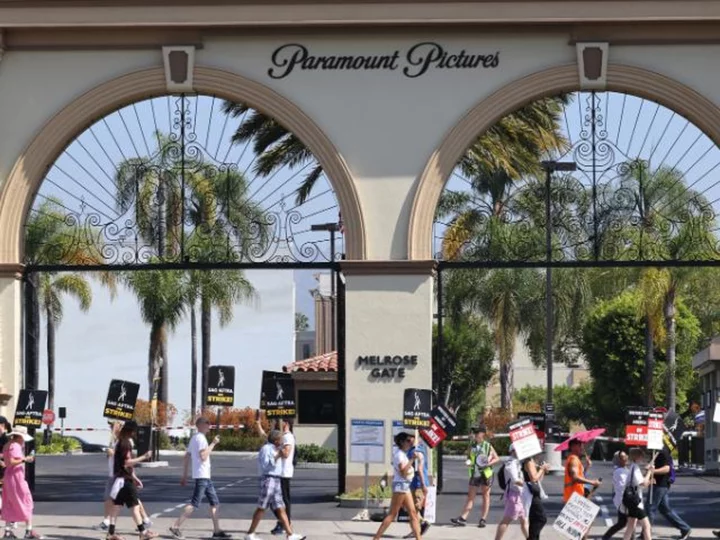Hollywood is still mired in a state of anguish.
As the writers' strike careens toward the 100-day mark this week, there is still no end in sight for the historic work stoppage that has brought the movie and television industry to a standstill and wreaked financial havoc on the interconnected web of people who rely on the business to make ends meet.
When news emerged last week that the studios and striking writers were set to meet for the first time since the strike commenced in early May, a ray of hope emerged in Hollywood. It seemed that maybe — just maybe — after a long, hot summer of picketing and trading barbs, hope might be on the horizon.
But it ultimately seemed to be a mirage. Even before the meeting occurred, it was clear that it would not prove to be very fruitful. The Writers Guild of America sent a statement to its members blasting the studios for alleged "calculated disinformation." That prompted an upset Association of Motion Picture and Television Producers, the organization that represents the major studios, to return the favor with a stinging statement of its own.
Which is to say that what started off as a promising indicator of a thaw in the frozen relations concluded with both sides effectively zinging each other in the news media and a continuation of the protracted standoff.
After Friday's rendezvous, the WGA released yet another statement, accusing the AMPTP of "leaking to the press" and stating that no agreement to resume negotiations had been struck because the AMPTP "needed to consult with their member studios before moving forward." The AMPTP chose not to comment.
The fire and brimstone that has overtaken Hollywood is on the path toward making history in the worst possible way. The current standoff has already surpassed the 2007-08 strike, which clocked in at 93 days, and is marching toward the longest writers' strike on record: 154 days in 1988.
Those strikes occurred when the industry was on far more stable ground than it is today. With disruptive streaming services upending the business and the prospect of A.I. threatening to further destabilize — arguably, revolutionize — the media sector, much is at stake during these negotiations. The WGA has made clear that the issues at hand pose an existential threat to the livelihood of writers and it does not intend to "make merely an incremental deal to conclude this strike."
And with 160,000 Hollywood actors, represented by SAG-AFTRA, also battling the studios on a second front over similar concerns, the studios will need to sufficiently satisfy their concerns if they want to climb out of this labor quagmire.
While the two sides are having difficulty coming to terms on such matters, both the WGA and AMPTP agree that the strike has gone on too long. The work stoppage is not only causing financial pain to the striking workers, but it is imposing prolonged hardship on the entire industry. Without production — a major economic engine that extends far beyond Hollywood — countless people who work in support roles are also without income.
But with no negotiating sessions on the books and with the relationship between the two sides defined by mud-slinging, don't hold your breath hoping the situation will be resolved soon. Arguably, passions have been aroused once more, leaving the state of affairs in a worse state than before the summit that dashed Hollywood's hope.

